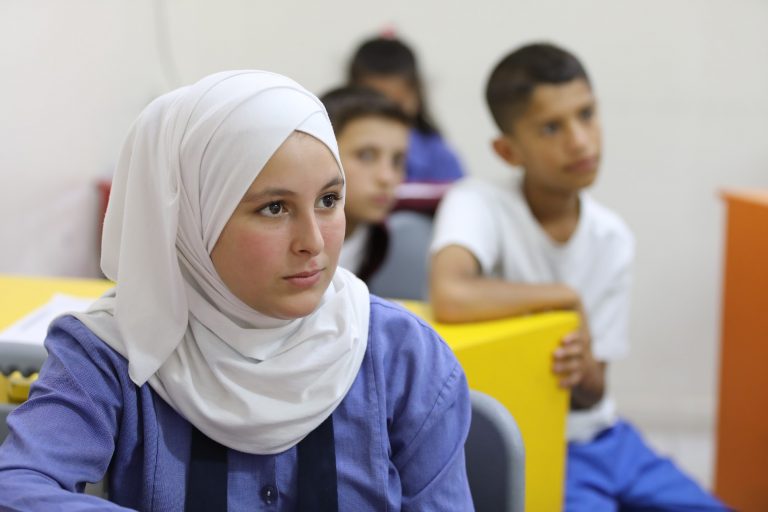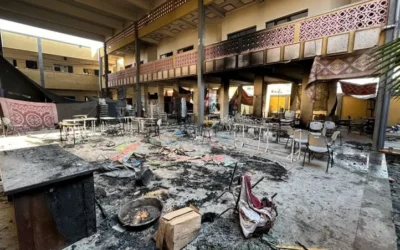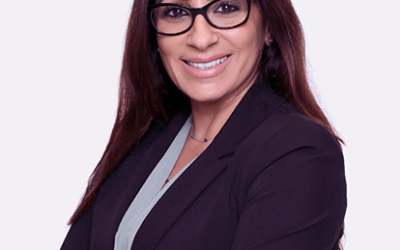Pupils the world over need our solidarity
As we mark this International Day of Education, it is a moment to honour our education professionals, our institutions of learning, and our young people who actively participate to benefit from high-quality education in all its forms. As stated by the late Nelson Mandela, “young people must take it upon themselves to ensure that they receive the highest education possible so that they can represent us well in future as future leaders”.
Education is the engine of development; it changes the lives of young people for the better by unlocking their potential to go on and fulfil their aspirations. By creating ladders of opportunity through education, we empower a generation to raise their ambition, enabling them to become responsible citizens who contribute to the growth of their communities, their nation and the world.
Sadly, far too many young people around the world are unable to access these opportunities. They are unable to benefit from education due to multiple reasons including the digital divide, migration and socio-economic conditions that act as barriers to their success. Today, the disheartening reality is that over 250 million children and young people do not attend school. Without education, we know that this can have a devastating impact on their life chances in the future, with many being trapped in poverty or low-paid employment. More must be done to ensure opportunity for all.
On this day, we must renew our collective commitment to revive and revitalise education that is more sustainable, equitable and inclusive.
With clear certainty, education plays an essential role in addressing many of the global challenges that the world faces today. These challenges were in stark focus last week as Expo 2020 Dubai hosted the Global Goals Week in association with the UN. This being the “Decade of Action”, as proclaimed by the UN General Assembly, to achieve its Sustainable Development Goals by 2030, the global community feels an elevated sense of urgency to deliver through impactful and practical action. The Covid-19 pandemic has intensified the need and the drive to not only make progress, but to do so with additional bolder action.
Last week, the second cohort of Global Councils for SDGs launched with an emphasis on accelerating progress. Through the UAE’s leadership, an additional eight new councils were established that joined the existing 10 in place. As chair of one such council, I am responsible for integrating the goals through what is called the Nexus approach, which is focused on the interlinkages between the goals and their targets.
It is inspiring to see the nation’s participation in introducing innovative models that actively align with the UAE’s national SDG implementation journey. Be it the newly launched SDG Youth Programme or Nomu, an initiative by the Abdulla Al Ghurair Foundation for Education, they will provide a pathway for the sustainable enhancement of talent and capacity building of the UAE youth, as we embrace the benefits of an increasingly digital future.
If there is one thing that we have learnt during this crisis, it is that education systems can move fast to adapt and change. The large-scale remote-learning experience opened the door to more digital transformations and, at the same time, exposed glaring shortcomings in the readiness of systems to assure access for all learners to high-quality education. This contrast presents us with the opportunity to help bridge the educational gaps exacerbated by the pandemic and build resilient and effective equitable education systems. These systems are designed to ensure that students have the digital tools and resources to learn anytime and anywhere, and where teachers have the right skills and support to guide those students on their learning journeys.
We are all trying to find our ways to meet the needs of a fast-changing world. This critical juncture calls for education systems to adapt, transform and rewire to assure that young people are learning those skills necessary for a sustainable future in a digital age. The implications of these changes demand innovative and disruptive models of education, which, in turn demand sustainable and innovative financing that will assure education for all.
According to a study conducted by International Finance Facility for Education, $75 billion a year is needed to put the world’s children back on track for universal education. This will not be possible if our agendas don’t align as a global community. Our strength at the Abdulla Al Ghurair foundation is our solidarity; shedding the silo model, as we focus on multi-sectoral partnerships. This approach has galvanised support from partners as a result of which we almost doubled our targets with the Abdul Aziz Refugee Education Fund, an initiative the foundation looks after, and managed to help over 38,000 young people gain credentialled education and hope for a better future.
This International Day of Education calls for humility as we embark on a path that is unknown. The reality is daunting. There are millions of young people, whose future is dependent on leaders from a variety of sectors engaging with others so that we can embrace the never-ending change and thrive together. In 2021, we have been challenged to think differently, work differently and live differently. As we look forward, we will need to educate differently so that all young people will be ready to compete in the global marketplace as job seekers and job creators. They are the ones who will drive the progress that our world needs so that we can, hopefully, celebrate more robust and prosperous communities, thriving economies, and inclusive societies.



